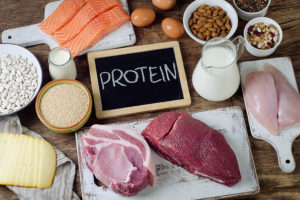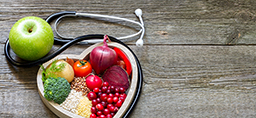
As the caliber of talent in competitive sports programs continues to rise, athletes young and old are constantly on the prowl for that extra edge to help them push their performance.
Many adopt the best training techniques. Some seek out the best fitness coaches.
But now, more than ever, top performers are realizing the importance of nutrition.
Weeding through the mass of information in books and online can leave the most resilient researcher feeling frustrated. It can also lead to unnecessary spending on supplements, not to mention the possibility of harmful effects from those supplements.
Keep in mind that a fair number of essential nutritional supplements can indeed aid in proper fueling and recovery. Plenty of products help boost endurance, power and muscle growth.
But there’s no denying the superior role of whole foods in delivering these same types of nutrients.
It all starts with a proper foundational diet, which includes lean proteins, whole grains, fruits and vegetables, nuts, seeds and beans.
No amount of supplementation can make up for a good foundational diet. Simply adding in supplements to help performance without eating healthy is like throwing seeds onto stony ground.
Let’s take a look at some of the more popular and beneficial nutrients you can get right from your food, which can give you the extra edge you’re seeking.
Protein powders
Many protein powders contain artificial ingredients, sugars and fillers. You can easily meet your protein needs right from your fridge or pantry.
Instead of a scoop of protein powder (21 grams of protein), try any one of these options:
- 1 cup Greek yogurt
- 3 ounces chicken, fish or tofu
- 3-egg omelet
- 3/4 cup cottage cheese
Weight gainer, mass supplements
In need of extra protein and calories to gain weight and muscle mass? Skip the tasteless powders—which are loaded with sugar—and look for some real foods.
Instead of four scoops of weight gain powder (700 calories, 50 grams of protein), try one of these:
- 3 packs oatmeal with 3 tablespoons peanut butter and 2 eggs
- Tuna salad sandwich with an apple and string cheese
- 1 cup yogurt with 1/2 cup granola, a banana and 1/4 cup almonds
Essential amino acids, branched chain amino acids
You’ve probably seen essential amino acids and branched chain amino acids referred to as EAAs and BCAAs. Amino acids are taken before, during or after a strength-training workout to help encourage muscle growth and prevent muscle loss.
Instead of one scoop of amino acid powder, choose one of these options:
- 6 ounces Greek yogurt
- 1 hardboiled egg
- 4 ounces grilled chicken
- 24 almonds
Recovery powders
After a hard workout, recovery nutrition is essential for preventing muscle breakdown, reducing muscle soreness and reducing inflammation.
For an extra boost, skip the scoop of recovery powder and choose:
- 30 milliliters of tart cherry juice concentrate
- Ginger or turmeric powder
It’s also crucial to include good carbs such as sweet potato, fruit, yogurt or brown rice, as well as protein such as chicken, Greek yogurt, eggs or edamame. These should be eaten within 30 to 60 minutes of exercise to promote recovery.
A smoothie with tart cherry juice, Greek yogurt, milk and berries is the ultimate recovery drink.
Pre-workout powders
Manufacturers of supplements will often say their products provide nutrients that increase energy, build muscle and improve circulation.
Most supplements, however, will contain a mysterious proprietary blend of ingredients that show little to no effect on performance.
Want to try a more natural energy boost? In place of a pre-workout powder, try:
- 1 to 2 cups of coffee, green tea or matcha tea
- 1 to 2 cups of natural vegetable juices
With whole foods, not only will you get the valuable nutrients to reach your goals, you will also gain vital nutrients that no supplement can provide.
This includes fiber, phytonutrients, vitamins and minerals that support digestion, boost the immune system, reduce inflammation and prevent injury.
 /a>
/a>
 /a>
/a>
 /a>
/a>